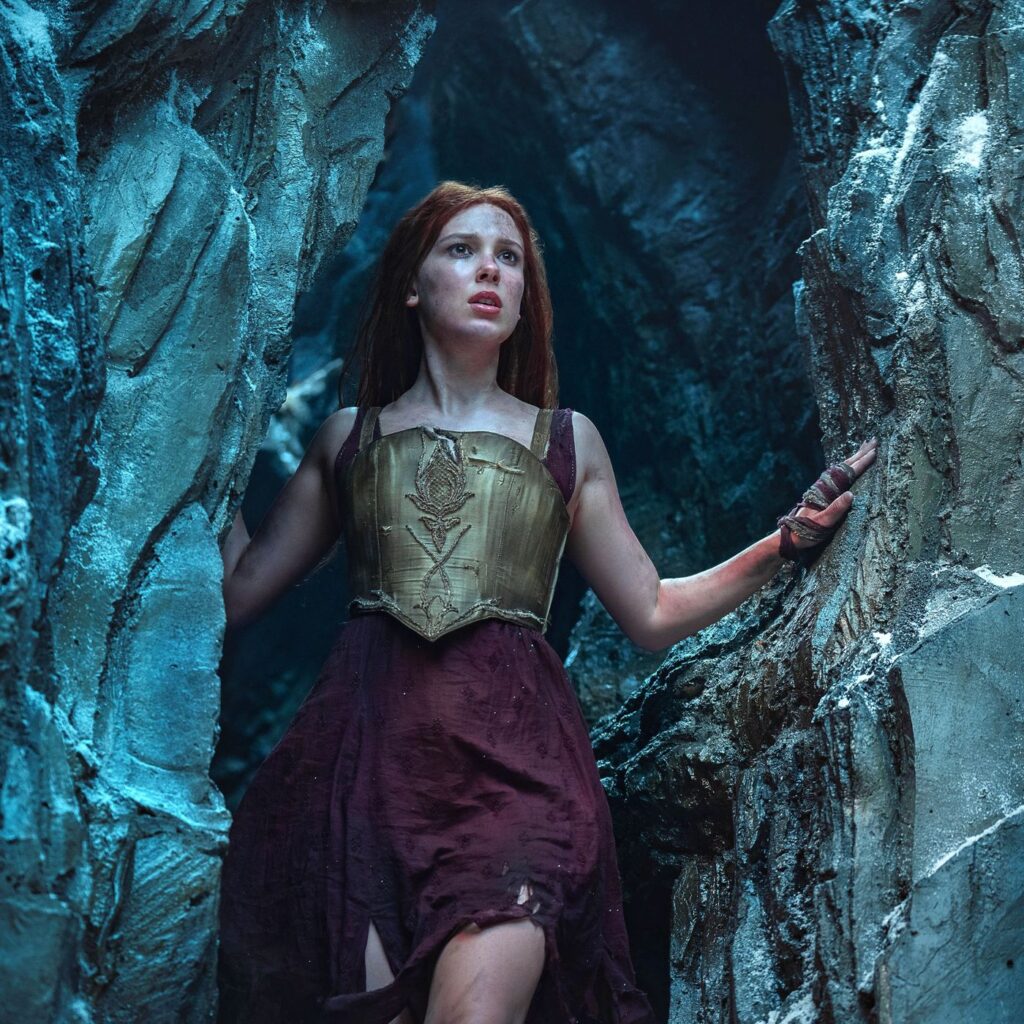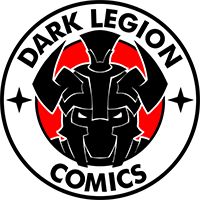The Dark Herald Does Not Recommend Damsel

It’s always obvious when a genre has outstayed it’s welcome. In 1969, Hello, Dolly! was launched into a world where the innocence of the high-production Broadway musical film was no longer welcome. The Sixth Day was arguably Arnold Schwarzenegger’s best 80s-style blast flick but no one was interested by 2000. So it is with Damsel. This film feels like an intriguing artifact. A leftover from another time. It has arrived as another genre whose time is passed.
However, and this is the important part, Broadway Musicals and 80s blast-flicks were both popular at one time. The Girl-Boss movies NEVER were.
The Girl-Boss may well go down in history as the cliche that broke Hollywood. For nine years, nearly a decade, this trope train wrecked its way through Tinsel Town leaving in its wake shattered franchises and crippled studios.
This hideous stereotype has had a much better run than I ever thought it could have. I honestly believed that market pressures would force it into oblivion years ago, but it didn’t. This fool’s parade marched on for years.
It started, naturally, with a Marvel production. Agent Carter. I had high or at least intermediate hopes for Agent Carter when it was announced. Then I saw it. I had figured that given the very positive response to Peggy Carter in Captain America they were going to use that series to springboard her to the future to reunite her with Steve. Wow, did I get that one wrong.
Peggy Carter was turned into the first of the girl bosses. She could take down three hundred pound brutes in purest pixie-ninja fashion. She was better than all the men around her, not because of her own proven superiority but due to their blithering incompetence. Her only allies were a sensitive black scientist love interest (in freaking 1947), a crippled love interest, and of course other women. The show was disappointing, boring, and heavy-handed. Back then it seemed as if Marvel could do no wrong but Agent Carter was the first indication something had gone horribly wrong.
It turned out that it wasn’t just with Marvel it was with all of Hollywood. From Terminator to Star Trek, to Resident Alien, to The Rings of Power, the Girl Boss broke every franchise she came in contact with. If a franchise was spared, there was a problem with the rights.
The Girl Bosses might have happened anyway, there were a number of factors that were lining up that favored them. Boomer cognitive rigidity was probably the biggest factor. They were finally in charge but were now so old they had no real grasp of the social issues other than Progressive = Good.
But then came a black swan event that absolutely traumatized the Left. Trump was supposed to lose by record-breaking numbers and by the end of election night, the first woman president had lost. Worse still had lost to a man who had been recorded making a private joke using the magic words “grab them by the pussy.” In any other election year that would have been a confirmed kill, but the internet had changed everything. Everybody knew what the context was as well as a kill quote, which neutered its impact. That and it was Bill Clinton’s wife that was trying to use it.
This was about the same time #MeToo broke. No one was surprised to find out that generations of actresses had been sexually abused by those in power in Hollywood. But actually attaching names to perpetrators was something new. And the rather suboptimal, “Hey, it wasn’t considered rape at the time,” defense didn’t move most juries.
Hollywood was already in complete hysterics over Trump’s election. MeToo poured gasoline on that fire. This was also about the time that Twitter, YouTube, and Facebook discovered there was no downside to inflicting far-left censorship on the American Right. Twitter in particular became a feminist echo chamber and everyone in Hollywood is on Twitter. So far as the producers and showrunners were concerned, there was a vast new audience that was waiting to join their franchises as soon as they were made “safe.”
The time was ripe for the industry to indulge itself in a grand mea culpe by taking things that were popular with men and giving them to women. The male humiliating Girl-Boss was born.
While The Last Jedi gutted the franchise fanbase, Disney and Hollywood ignored that and pretended that $1.3 billion was proof that this new Girl-Boss-loving audience was real. Rather than acknowledge that making $700 million less than its predecessor was something to be worried about.
What private doubts there were (and you can bet they were private), were laid to rest when Captain Marvel raked in $1.1 billion. There were a bunch of reasons for that win but none of them had to do with the Girl-Boss being a winning formula.
This was clearly the new way to make the mega-bucks, put women in the roles traditionally held by men in movies that have always been made for men.
Overbearing anti-male themes were now de rigeur and all of them were following the Feminist Heroine’s journey of a powerful, super-extra special woman becoming even more powerful and super-extra special. Along the way, she will put the man the audience thought was going to be the hero in his place.
For nearly a decade they tried to make this work and succeeded only in driving off their audiences. After last year’s carpet bombing run of theaters by Disney, reality was resentfully acknowledged and various projects in development were either canceled or are now being reworked.
The only thing left over from the Times Up era are projects with ironclad contracts that the powers and principalities of Tinsel Town can’t get out of. These films will have to be released, albeit with the minimum contractually required marketing and screen presence allowed.
Damsel is a prime example.
The critics aren’t pretending to like this one. The kindest thing I’ve heard so far is, that “Millie Bobby Brown was overdue for a flop.”
This thing is supposed to be the inversion of a number of high fantasy tropes. Except Disney’s Willow beat them to the punch, did everything that Damsel tried to do, and arguably did it better, and I’m shocked to be saying that.
Centuries ago in the unsurprisingly diverse kingdom of Partriarchia or something, an idiot king attacked a dragon with a bunch of knights using the dumbest tactics you can imagine. The dragon’s eggs were broken but that was all that they managed. The dragon (it’s a girl dragon, remember that, it’s important) kills all the knights but spares the king if he promises that his house will keep sacrificing its girlchildren to her.
Fast forward and Princess Millie Bobby Brown is a hard-working peasant girl who knows her own worth. Strong and independently minded she agrees without too much coaxing to marry the crown prince when the country’s lottery system picks her. Not the worst way to avoid a Hapsburg Jaw but that isn’t why they do it. During the marriage ceremony her blood is mixed with the prince’s, this is to fool the dragon into thinking she’s a member of the royal family, because this girl dragon is no Smaug and has been fooled by this for centuries.
The Princess Millie is thrown to the dragon in what is easily the only genuinely entertaining part of this movie. I was laughing for three whole minutes but I think I was meant to be horrified.
After some screaming and roaring and such, the Princess Millie and her Dragon come to an understanding. The only real crime here is that the royal family had renigged on the deal and provided dimwitted peasant girls who never once asked why there was always such an awkward silence after each royal wedding, instead of their own children. Since a few of her eggs were broken Dragon’s been fully justified in slaughtering generations of children for centuries and it was wrong to not let her eat actual princesses. Because that’s how feminism works if you’re not thinking about it which is the only way to think about feminism.
Princess Millie brings the dragon back to kill the royal family of Partriarchia. There was some other stuff that probably happened after that but my wife wanted to watch her K-drama* and at that point so did I.
I have rarely seen so much minimum effort on either the big or little screen. Credit to Millie Bobby Brown, she was the only who wasn’t phoning it in. Brown had accepted their coin and delivered the best performance she could, good for her.
But everyone else was going through the motions. Robin Wright clearly resented her being cast as the evil queen Buttercup and was just dead on screen. Her attitude was quite obviously, “I’m too good to act in this thing.” Angela Basset was understandably confused about how she had become Princess Millie’s mom. The costume design was lazy, hackneyed, and was pretty much just ripping off the Princess Bride. The special effects looked like something from 2005. The diversity shotgun had been used to fire random minorities into this medieval setting. Also, the lighting was bad.
Except for Millie, nobody was trying to do anything except collect a paycheck and it showed. Damsel is a made-for-TV movie whose era has passed, and everyone connected with the project knew it.
This thing was a relic from the Age of the Girl-Boss. I won’t say the fashion was inexplicable, I do understand how it came about and so do you. But what is beyond a sensible person’s comprehension is how long it lasted.
#TimesUp
*Guardian: The Dark and Lonely God, and it’s infinitely better than Damsel.
He’s 2,000 years old demi-god and has never seen a movie before. The joke here is that this actor was the star of that movie.

